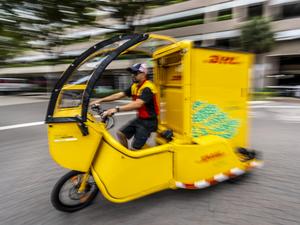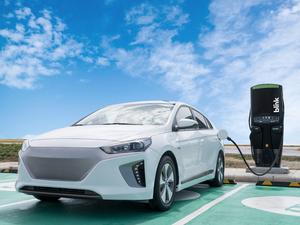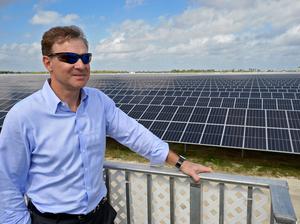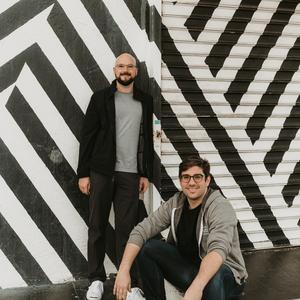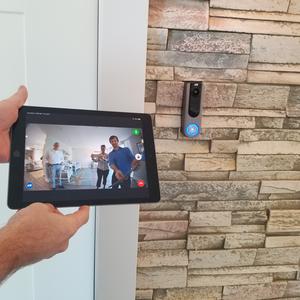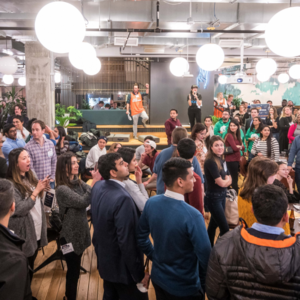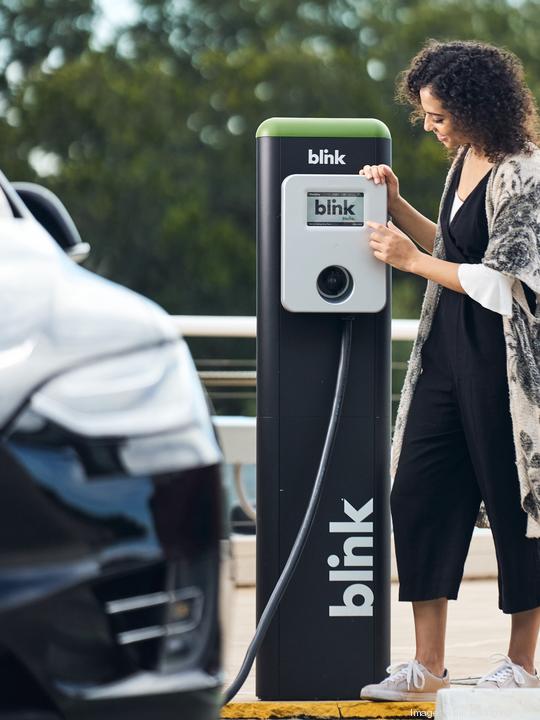
Blink Charging wants to be on every corner of the earth with electric vehicles.
The Miami Beach EV charging company is working toward that goal through a series of acquisitions. Blink gained a foothold in the United Kingdom in April when it purchased EB Charging for $23.4 million, adding more than 1,000 new charging stations to its global fleet.
Then, in June, it entered the manufacturing space with the acquisition of SemaConnect, an EV charging station manufacturer. With the deal, Blink gained 13,000 charging stations and 3,800 host site locations, along with SemaConnect's Maryland manufacturing facility. Blink aims to eventually manufacture up to 50,000 EV chargers per year, CEO Michael Farkas said.
"We want to have chargers in any location where cars are parked for an extended period of time," he added.
That involves a push to quickly expand in the U.S. There's plenty of incentive to do so: This year, the Biden administration announced it will deploy $7.5 billion to American companies to build out a national network of 500,000 EV chargers.The goal is to make it easier to access chargers so more people can move away from fossil fuel-burning vehicles.
The market for EV charging stations is projected to surpass $800 billion by 2028 as electric cars become more common, according to Bloomberg New Energy Finance.
Blink operates 51,000 charging stations in 19 countries and has more than 500 employees globally.
Farkas discussed Blink's acquisition strategy and the firm's plans for Florida in a conversation with Miami Inno. This interview has been edited for clarity and length.
Who are Blink’s customers? Right now, most of our customers are commercial. We have hardware systems for every kind of property – single-family homes, multifamily, off-highway charging – but our main focus is commercial public charging in parking garages.
Blink has made more than one significant acquisition recently. Why is it key for Blink to grow via acquisition at this stage? It’s been part of our strategy since day one. If you look at Blink’s history, we’re a combination of about 12 different companies. Our mode of growth is organic and through acquisitions. It gives us a base when we enter new markets, instead of going in blindly without boots on the ground. Right now, it’s a land grab: There are so many locations that need charging stations, and we need to get to those locations and understand those markets before our competitors.
With EB Charging, Blink is entering the United Kingdom. Earlier this year, the UK government said it will ban the sale of fossil fuel vehicles by 2030. How important is that market? Without a question it’s a valuable market. The UK is being very progressive on this issue. They are building chargers across the country. Manufacturers like Jaguar switching over to electric. [The country] is making a lot of investments in EV infrastructure. That’s a major reason to be there and the rest of Europe.
What role will Florida play in Blink’s expansion? Our corporate office is in Miami Beach and I expect we’ll stay in Miami for the foreseeable future. We received a grant from the state [of Florida] to build charging station infrastructure along hurricane evacuation routes and we’re also working with different cities and municipalities. We’re looking at locations for a new manufacturing facility and I spoke to someone from the state about what kind of help they could offer us compared to other locations. We’d prefer to stay in the state the company was founded in.
What are some of the challenges that come with working in the EV field? Just keeping up. There are probably a couple million of EV chargers globally, but we’ll need more than 400 million in the next few years. One of the biggest challenges in finding the right people to help us grow. The good thing is, we've been able to recruit amazing people through our acquisitions.
For more stories like this one, sign up for Miami Inno newsletters from the South Florida Business Journal and the American Inno network.
